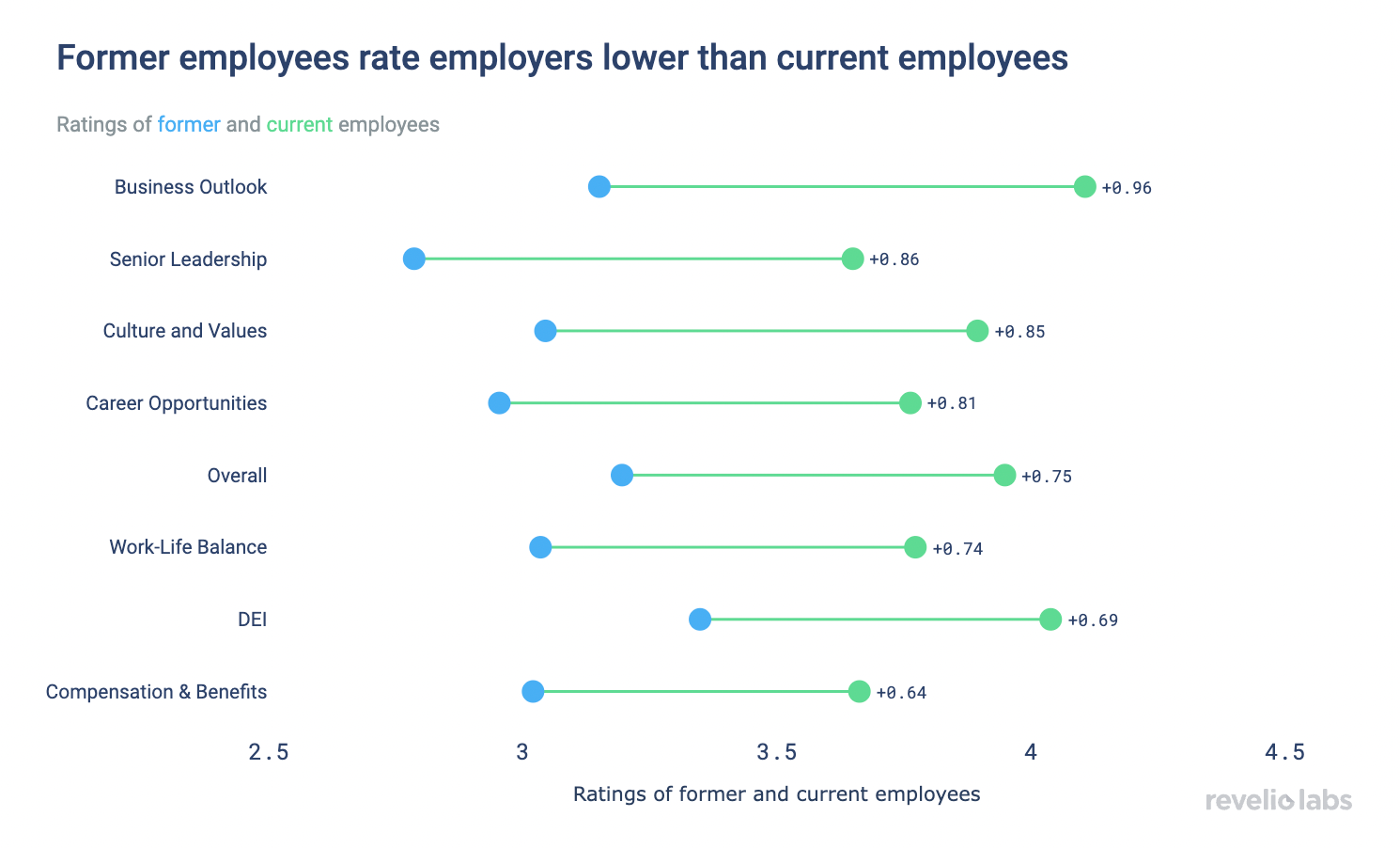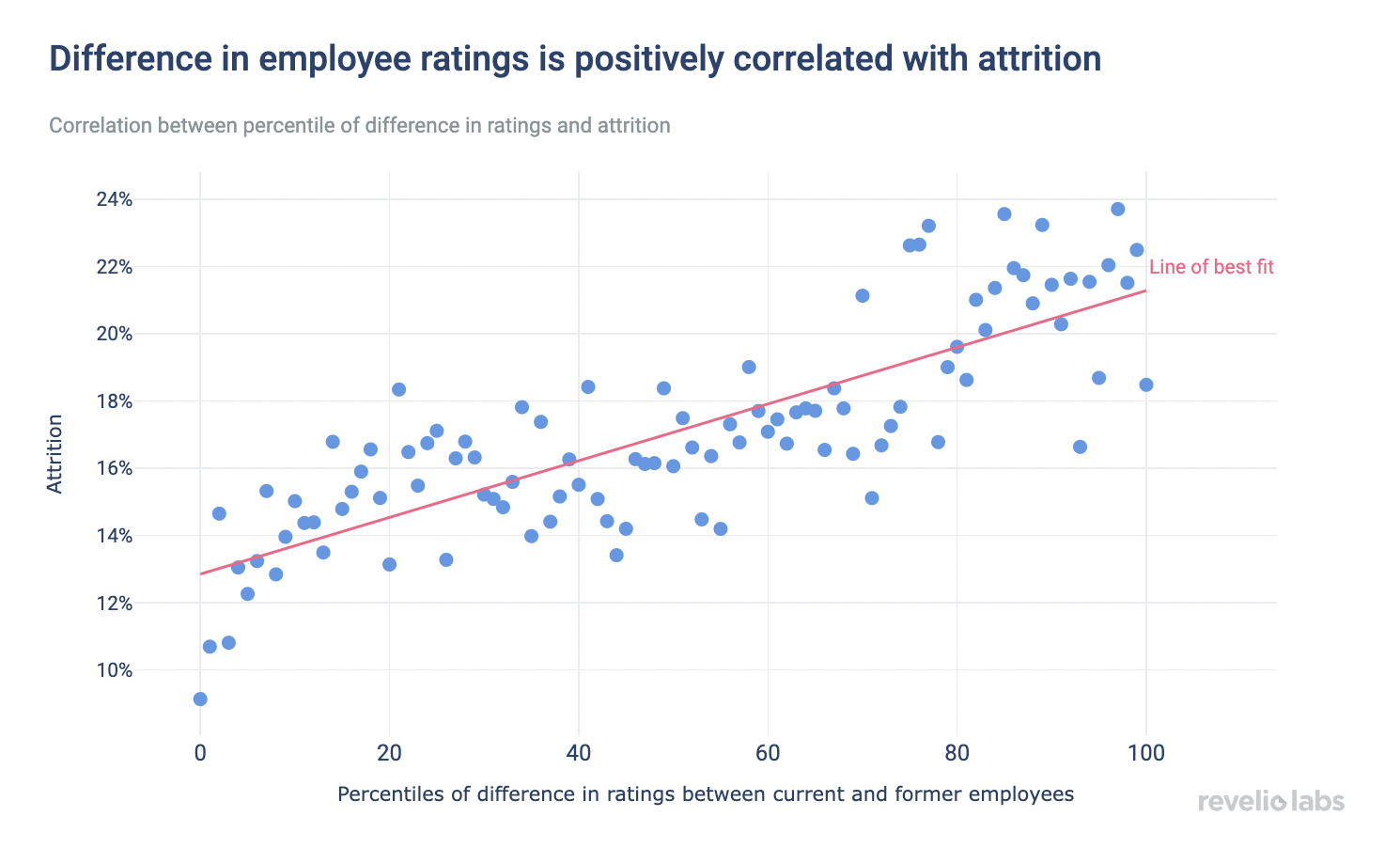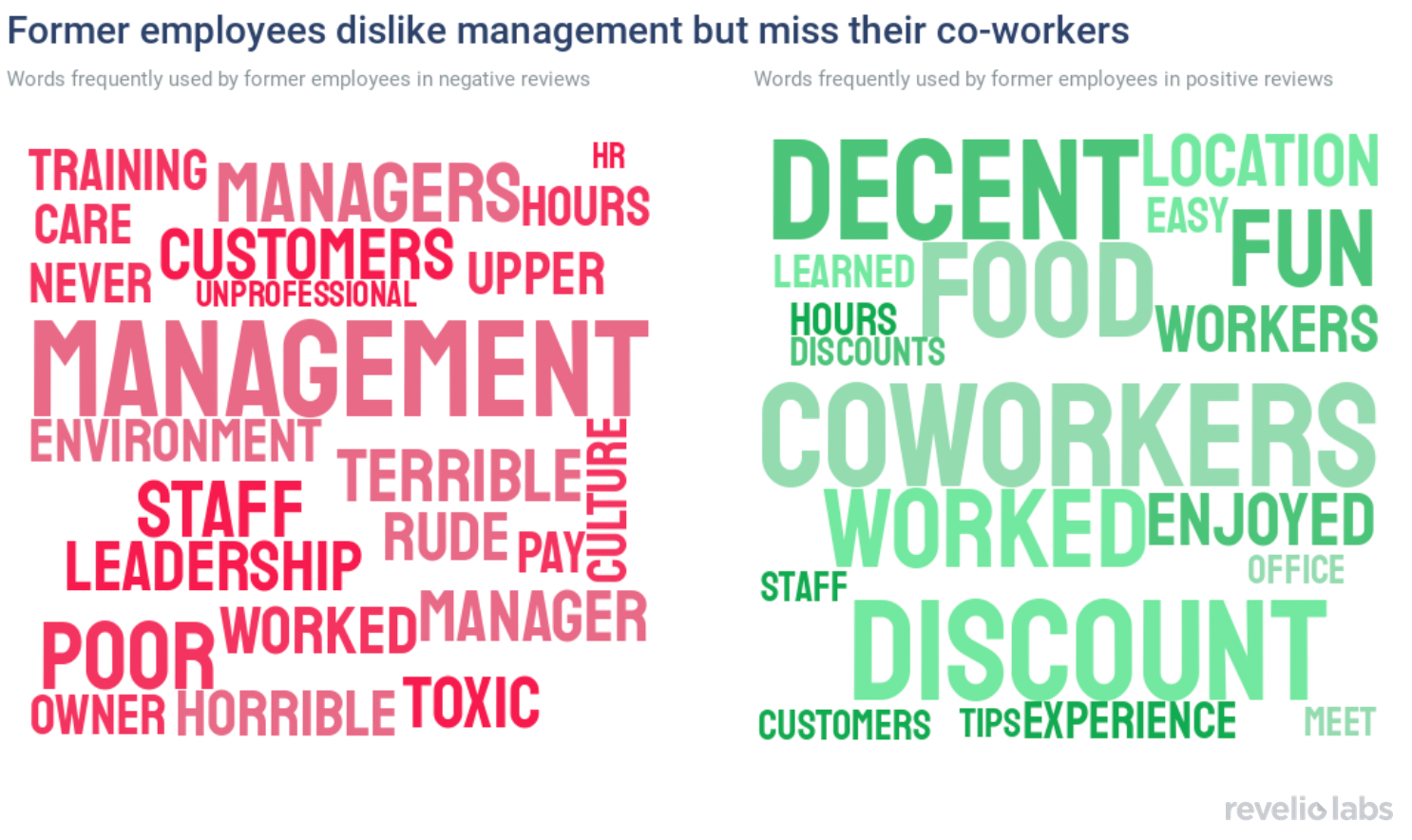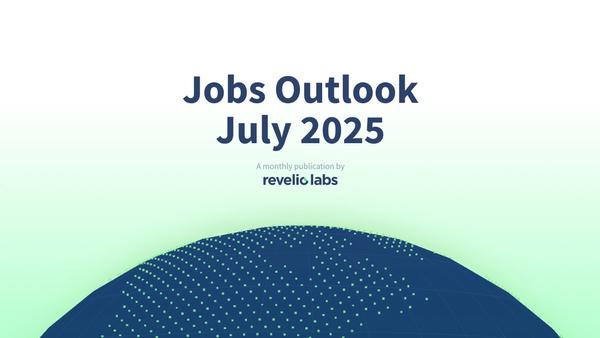What Employees Say After Their Exit Interview
🎼 Got a long list of ex-lovers, they'll tell you I'm insane 🎶

Former employees consistently rate their previous employers lower than current employees. We find that the most significant difference is in the assessment of the business outlook.
There is a strong correlation between attrition rates and differences in ratings between current and former employees, possibly attributed to former employees expressing opinions more candidly.
Former employees are more negative about management and the work environment. Yet, they seem to be missing their coworkers and the perks they used to have, like free food and discounts.
Employee satisfaction is one of the most important determinants of retention but measuring it precisely can be tricky. Employee ratings and reviews often don’t paint the full picture, as employees may be hesitant to express their true views for fear of potential repercussions. How large are the differences in ratings and reviews between current and former employees and what can we learn from the differences?
Our data show that former employees consistently rate employers lower across all categories, compared to current employees. The most significant discrepancy is observed in the assessment of the business outlook. It seems that current employees are convinced that the outlook for their companies is much better, whereas when former employees look at their previous companies retroactively, they do not see great potential.


What drives these differences? The discrepancy in ratings between current and former employees strongly correlates with workforce attrition rates. On average, for every one percentage point increase in the difference in ratings between current and former employees, there is a corresponding 0.08 percentage point rise in attrition.


Sign up for our newsletter
Our weekly data driven newsletter provides in-depth analysis of workforce trends and news, delivered straight to your inbox!
There are two plausible explanations for this correlation. On the one hand, former employees might tend to express their opinions more candidly, now that they no longer face any repercussions for sharing negative feedback about their former employer. As a result, they can be more honest about the company and why they are having a hard time keeping their talent. On the other hand, if an employee has experienced layoffs or termination from their previous job, their perception of the company is likely to be worse. In this case, the company is already experiencing high workforce attrition due to layoffs, and because of that the disagreement between laid-off employees and their colleagues increases.
Our analysis also reveals that the discrepancy in ratings between current and former employees is more pronounced in small and medium businesses than in large companies, highlighting the significance of anonymity in reviews. Identifying reviewers is easier in smaller companies, which can potentially inflate current employees' ratings compared to former employees. Conversely, larger corporations exhibit smaller rating differences due to the difficulty in tracing negative reviews back to current employees.

What leads former employees to rate their ex-employers lower than current employees? Searching through millions of positive and negative reviews, Revelio Labs can identify the topics where former employee reviews diverge from their current employee counterparts. Former employees are more negative about the management, work environment, and leadership. But here's the fun twist – they still miss some perks of their old jobs, like free food, employee discounts, and the workplace buddies they left behind.

